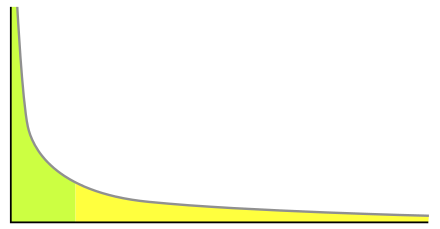The Future of Programming
Something has been brewing in my mind for years about which I have unpublished blog posts, loosely linked ideas and frustrations in my daily life as a software developer. I love software and I enjoy my job tremendously, but at the same time I believe that software creation is horribly inefficient and unnecessarily complex.
I've noticed that my thoughts are slowly becoming more consistent and I believe I can see where our industry is headed. Of course I can't predict how the future is going to play out, but A) I can dream about how software should be created and B) I can also see what it would take to get there. I'm going to write publicly about what I think could (or should) be The Future of Programming in a series of blog posts.
This year is a good time to start thinking about this. We're at an interesting stage where we have thousands of languages, eco-systems,
Brewing means taking materials, letting them ferment for some time and getting a very different product as a result. Only at the end you get to see if the brew is terrible, so-so, good or great. Well, here's my result and I hope you'll enjoy it.
In this series, there will be a couple of types of posts:
- Foundational: the central ideas that are the essence of everything I say or think about software
- Highlighs: pointing out companies, products or experiments that are doing something very smart or interesting
- Comments: my ideas on patterns, languages, habits
Full disclosure: I worked at the Low-Code vendor Mendix for about 7 years. I have no financial ties to the company anymore. Many of my ideas came from that company and I strongly believe in its mission, which is to let Business and IT create software together. However, I think it's more important that the mission succeeds than that the company succeeds.
I've noticed that my thoughts are slowly becoming more consistent and I believe I can see where our industry is headed. Of course I can't predict how the future is going to play out, but A) I can dream about how software should be created and B) I can also see what it would take to get there. I'm going to write publicly about what I think could (or should) be The Future of Programming in a series of blog posts.
This year is a good time to start thinking about this. We're at an interesting stage where we have thousands of languages, eco-systems,
Brewing means taking materials, letting them ferment for some time and getting a very different product as a result. Only at the end you get to see if the brew is terrible, so-so, good or great. Well, here's my result and I hope you'll enjoy it.
In this series, there will be a couple of types of posts:
- Foundational: the central ideas that are the essence of everything I say or think about software
- Highlighs: pointing out companies, products or experiments that are doing something very smart or interesting
- Comments: my ideas on patterns, languages, habits
Full disclosure: I worked at the Low-Code vendor Mendix for about 7 years. I have no financial ties to the company anymore. Many of my ideas came from that company and I strongly believe in its mission, which is to let Business and IT create software together. However, I think it's more important that the mission succeeds than that the company succeeds.
